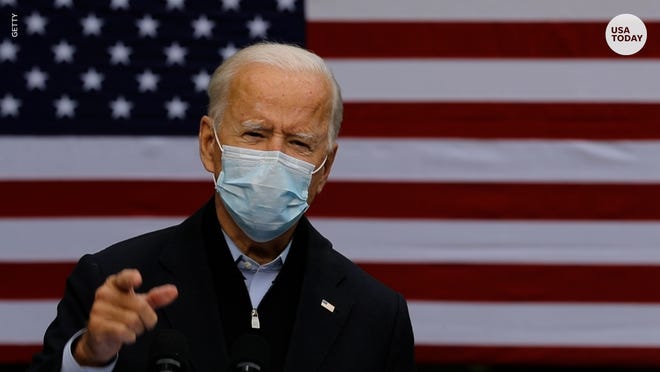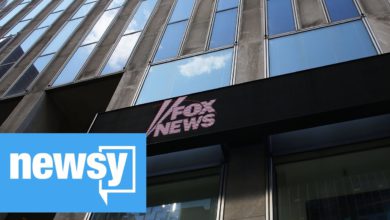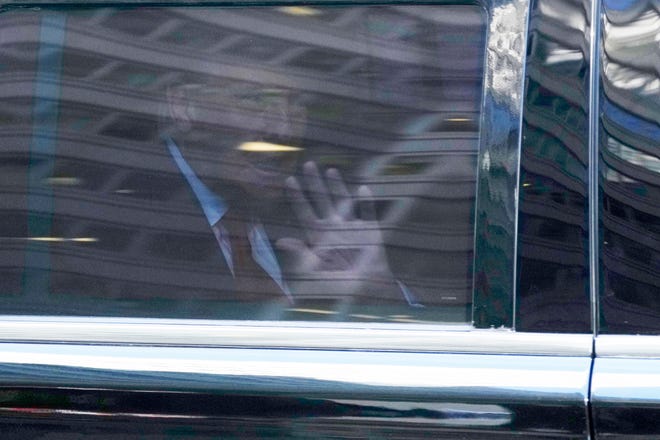
WASHINGTON – As the federal government prepares to unveil new vaccination rules for workplaces, 5% of unvaccinated adults say they have left a job because of a COVID-19 vaccination requirement, according to a survey released Thursday.
That represents 1% of all adults, according to the nonpartisan Kaiser Family Foundation//, which conducted the survey of 1,519 adults from October 14-24.
The White House is reviewing an emergency Labor Department rule requested by President Joe Biden spelling out vaccination rules for businesses with 100 or more employees. When released, the rule will fill in the details on how workers at larger businesses must get vaccinated or be tested regularly for the coronavirus.
Separately, federal employees and contractors must get inoculated unless they qualify for an exemption.
Biden has said he "tried everything else possible" before turning from carrots to sticks to control the pandemic.
"The mandates are working," Biden said during a CNN town hall last week, dismissing concerns that workers would refuse to comply.
More:Public employees, including teachers, in 26 states will face federal vaccination requirement

The share of workers who told the Kaiser Family Foundation their employer required them to get vaccinated has increased from 9% in June to 25% in October.
Adults with a household income of $90,000 or more are more likely than those with incomes below $40,000 to say their employer has required them to get a COVID-19 vaccine (31% vs. 18%).
But half of all workers say their employer has not required them to get a COVID-19 vaccine and that they do not want their employer to require vaccination.
Black (78%) and Hispanic adults (71%) are much more likely than white adults (49%) to support vaccination requirements for larger businesses, according to the survey.
If faced with a requirement, more unvaccinated workers (46%) said they would most likely choose weekly testing than leave their job (37%) or get vaccinated (11%). If weekly testing is not an option, 17% said they would get vaccinated and 72% said they would quit.

About six in ten unvaccinated workers also said they would probably seek an exemption, most likely based on religious grounds.
Although most major religions don't object to vaccinations, courts have said religious beliefs don't have to be tied to a faith's doctrine as long as they are "sincerely held." That puts employers in the difficult position of determining if a religious exemption applies.
"Implementing a vaccine mandate will be complex," Richelle T. Luther, a top executive with the Columbia Sportswear Company, which supports the pending federal requirement, told a House committee this week. "We need guidance from the federal government on how to process accommodations, particularly for religious exemptions."
'Trust God to be our healer':As COVID-19 vaccine mandates grow, so are requests for religious exemptions

At United Airlines, the company Biden likes to tout for its successful vaccination policy, about 2,000 workers – less than 3% of the U.S.-based workforce – applied for a religious or medical accommodation.
Fewer than 600 United employees did not meet the airline's Sept. 27 deadline of getting vaccinated or receiving an exemption.
Two House Republicans said Wednesday that the federal agencies overseeing the mandate for federal workers and contractors haven't backed up an assertion that the vast majority will comply.
"If they are wrong," Reps. James Comer, R-Ky., and Jody Hice, R-Ga., wrote in a letter to administration officials, "they risk significant disruption of agency missions, major adverse consequences for workers, families and businesses, and the breach of an untold number of federal contracts."
Nearly one-in-five adults say they know someone who has a left a job due to a vaccine mandate, with Republicans about twice as likely as Democrats to say this (32% vs. 14%), according to the Kaiser survey.
Jeff Zients, the White House's coronavirus response coordinator, told reporters Wednesday that federal workers who don’t meet the Nov. 22 compliance deadline will not be immediately fired.
“For any of the probably relatively small percent of employees that are not in compliance, they'll go through education, counseling, accommodations, and then enforcement,” he said. “We’re creating flexibility within the system. We’re offering people multiple opportunities to get vaccinated.”
Maureen Groppe has covered Washington for nearly three decades and is now a White House correspondent for USA TODAY. Follow her on Twitter @mgroppe.
Source link








